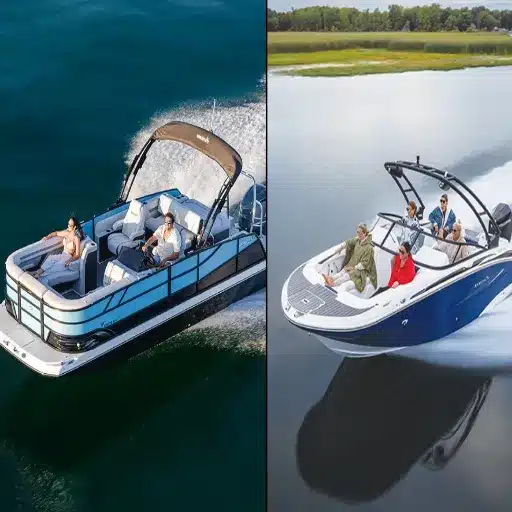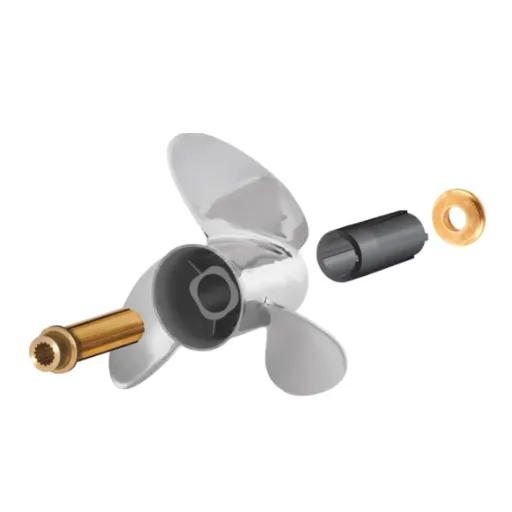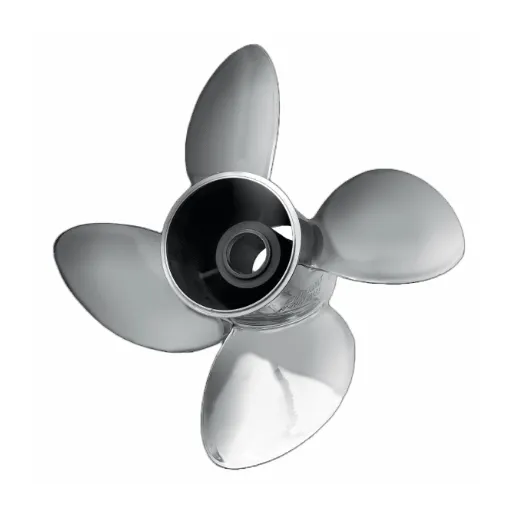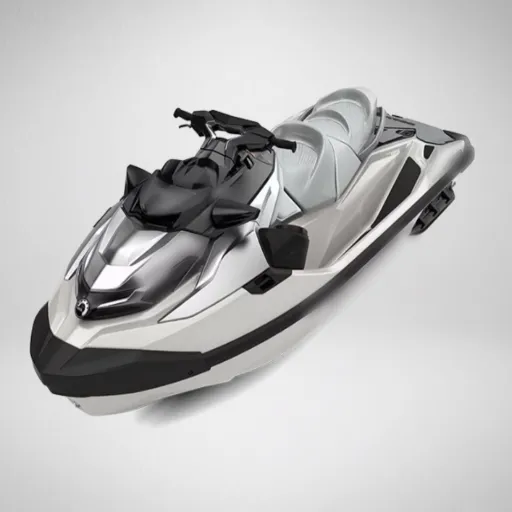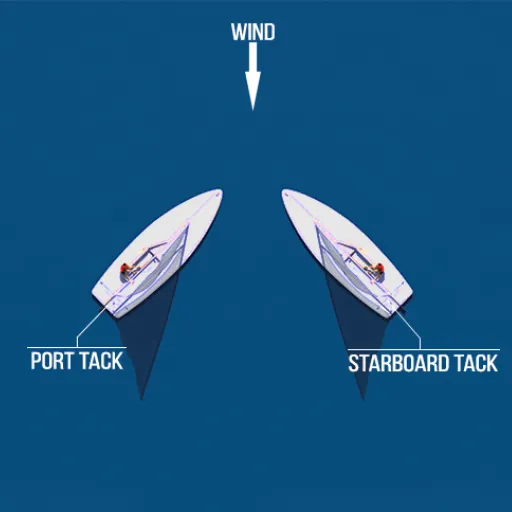Regarding boating, the choice of vessel often becomes the very first big decision for an aficionado or a newbie. Two of the most sought-after options for 2025 will naturally be deck boats and pontoons-they boast of advantages of their own, catering to different lifestyles, activities, and tastes. But really, which one prevails? This guide will discuss some of the highlights of each type of boat, comparing their actual performance, versatility, stowage, and overall value to help you determine the one best suited for your outdoor experiences. Whether you like the fastest wind in your face or want the family to sit back and enjoy being spoiled with extra space, this article will provide you with valuable insights to make an informed decision.
Understanding Deck Boats and Pontoons
What is a Deck Boat?
A deck boat is a recreational vessel that is equipped with a wide-open deck to maximize space for passengers and activities. The V-shaped hull gives the deck boat its speed, stability, and agility, making it perfect for cruising, water sports, and family outings. The length of the ship can range from 18 to 28 feet and accommodate 8 to 12 passengers, depending on the model. Because of their spacious seating and storage capacity, these boats find popularity among people who want all-terrain water fun combined with comfort. They have numerous layout possibilities, including lounging areas, swim platforms, and options for on-board entertainment. The deck boat is well-suited to function while maintaining the adjective fun attached to it. It lets people with various interests mingle.
What Is a Pontoon Boat?
The pontoon boat facilitates leisure activities and, depending on your classification, is a large haulage type. Orders of magnitude of the longest bain (‘buoyancy’): pontoon boats or floats. I mean extraordinary bailor’), generated with 2-3 tubes to allow minimum land distance to the water. Boats are generally flat-decked with generous seating arranged on the deck, providing it with ample comfort for a short stay with fellow mates, fishing, and cruising.
Pontoon boats come in various sizes, generally ranging from 16 to 30 feet in length, and can accommodate between 6 and 20 passengers, depending on the model and layout. Modern pontoons come kitted out with plush lounge seating, customizable floor layouts, sunshades, entertainment systems, and, if you are looking at the major specs, a kitchen and bar! From their stable aura to flex, they provide an excellent opportunity for a party looking to chill on water with no compromise on comfort and convenience.
Key Features of Each Boat Type
Pontoon Boats
Most Pontoon boats have wide spaces and calm rides, perfect for relaxing or entertaining. They usually have lounging or sectional seating arrangements that can accommodate anywhere from 6 to over 20 people, depending on their size. Many are available with flexible floor plans, allowing the owner to choose to install sunshades, entertainment systems, or perhaps even a few storage compartments. More design ingenuity has created possibilities like bars, tiny kitchenettes, and large deck spaces. The flat and firm platform makes these boats exceptionally versatile, so from fishing to chilling with friends, they do it all.
Bowrider Boats
Bowriders have always been synonymous with sporty performance and the design aimed at families. They typically feature comfortable seating both in the bow and in the cockpit, sized to hold anywhere from a smaller group to a medium-sized crowd. The powerful engines provide thrills to enthusiasts who ride skis and those who ride boards. Features on bowriders possibly include swim platforms, lockers for working gear, and enhanced navigation systems. Their relatively small size and quick maneuvering may make them an enjoyable boat experience for any boater, whether or not they are experienced.
Center Console Boats
Fishing enthusiasts love center console-type boats because their deck arrangement allows movement in all directions (360 degrees). With commercial fishing features such as rod holders, live wells, and great storage for tackle and gear, these boats sometimes come with T-top covers for shade, sportier engines used in offshore fishing, and sophisticated fish-finding technology, depending on size and models. These boats offer a fair mix of functionality and comfort, while also providing space to catch a fish, relax, and enjoy life.
Cabin Cruisers
Truly one of the nares of luxury on the water, these boats have everything you’d expect in a small house. An enclosed cabin providing ample comfort, with rooms for sleeping, bathing, and a kitchenette, makes them good options for overnight travels. Larger vessels may have further air-conditioning, heating systems, and a state-of-the-art entertainment system for greater comfort. Speeds and stability are just suitable for ensuring that cabin cruising goes well for long-distance adventures or serene coastal cruising.
Jet Boats
Jet boats are the definition of speed and maneuverability, appealing to thrill-seekers and performance anglers. They use water jet propulsion instead of the classic propeller system, hence granting incredible swiftness and security in shallower waters. Usually, they are rendered with swim platforms, decent but compact seating, and carting abilities for water sports-related activities like wakeboarding or tubing. Jet boats, being very versatile, therefore offer an unexpected melting pot of thrills and practicality to cater to a wide array of recreational aversions.
Each type of boat offers its specialties for different experiences: calming solitude or adrenaline-filled offshore adventures. One will have to consider personal preferences, intended use, and comfort factor in making that choice.
Deck Boat vs Pontoon: Performance and Design
Hull Design: Stability and Handling
Different hull designs on deck and pontoon boats result in varying performances in terms of stabilization and handling. Deck boats generally come with a V-hull configuration that gives them the power to maneuver well, especially at higher speeds. The greater ability of the boat to handle choppy waters also makes it an ideal vessel for more dynamic activities such as watersports.
Pontoon boats have a flat-bottomed design supported by two or three cylindrical pontoons, ensuring lateral stability above all else, especially on calm water. This design makes pontoon boats an excellent vessel for a leisurely cruise, socializing, or fishing. Though pontoon boats may never match the sharp handling of a deck boat, their stability makes passengers comfortable and safer, especially if corridor arrangements are made for a larger group or family. Choosing between these two hull designs will often depend on the activities planned for the boat and sometimes on the type of water intended to be navigated.
Speed and Maneuverability
The V-shaped hull design makes deck boats more preferable for faster and more maneuverable ships. This design slices through the water, making it better suited for situations of watersports or choppy conditions. Deck boats generally carry high-power engines that ensure faster speeds and delicate handling, appealing to boaters for that more active feel.
In recent times, pontoon boats have been experiencing mountainous trends in achieving excellent performance. With the innovation of the tritoon design (three-pontoon configuration) and better engine capabilities, many pontoon boats on the modern market can go toe-to-toe with the speed and power of the older deck boats. They are still not as nimble as the deck boats do, so their usable range has been extended through it, being capable of doing anything from leisure cruising to towing smaller water sport equipment. All in all, the choice should be based on a desire for speed and agility or comfort and utility.
Best Uses for Deck Boats and Pontoons
Each type, deck boat or pontoon, excels at a different activity, but their usages overlap at specific key points, affording you some choice depending on what you want. Suppose you want speed and agility for pure adrenaline rush activities like water skiing or wakeboarding. In that case, the choice is straightforward-the deck boat, which offers sleek lines and a V-hull design that provides stability at high speeds, thus ensuring a blast with the waves.
The pontoon builds up on comfort and space, which is excellent for laid-back cruises, fishing, or rendezvous with the land party of family and friends. The flat deck design of pontoons, along with ample seating arrangements, allows easy accommodation of large crowds, and is amongst the most popular choices for entertaining on water. Newer and modern pontoons have even gone ahead to offer fishing stations, sun lounges, grills, and many others, thus adding to their versatility.
For those combining activities, greater engine power and advanced structural design now allow pontoons to participate in water sports. In contrast, deck boats have been steadily improving seating capacity and comfort features. Ultimately, depending on the user’s requirements, each type of boat may prioritize correctness, speed, handling, or a combination of relaxation and space.
2025 Trends in Deck Boats and Pontoons
Emerging Technologies in Boat Design
It’s been flung open for great potential to improve performance and efficiency, with rapidly growing technology in the boat industry. The significant change, however, is the adaptation of electric propulsion systems, which provide a quiet and environmentally friendly alternative to gas engines that spew pollutants into the air. They not only reduce emissions but also merge with new battery technologies to extend the time boaters can spend on the water.
The second notable advancement is the Booming Use of Smart Technology on Deck Boats and Pontoons. Touchscreen control, integrated navigation, safety sensors-a plethora of features add to an intuitive connected experience for the user. Light-weight composite materials are increasingly used to increase fuel efficiency and speed without compromising the strength of the boat.
At the front of today’s boat design, sustainability floats. Using recyclable construction materials or solar-powered features is a great concept for manufacturers to minimize their environmental impact while catering to the ever-growing demand for greener solutions. These emerging technologies are transforming the boating experience while also focusing on the more sustainable aspects of the industry.
Eco-Friendly Options and Sustainability
The promotion of green alternatives has gathered steam as manufacturers attempt to keep their innovations and environmental balance in thrust. Electric propulsion enjoys higher popularity, though, with zero emissions and all, being quieter than the standard engine. In favor of a greener method, materials such as biodegradable composites and recycled metals are applied in boatmaking to minimize trade disposal and build a circular economy. On the other hand, boats can now use renewable energy to charge their onboard systems owing to improvements in solar panel integration, thus significantly reducing their dependency on fossil fuels. All these green options go hand in hand in protecting the marine ecosystem while catering to consumer demand for eco-friendly products, thus shaping a greener and resilient future for the boating industry.
Consumer Insights: Market Preferences
Determining consumer preference is an essential task for innovation in the boating industry and for meeting market demand. Recent trends indicate that more and more Americans associated with boating are actively searching for greener and energy-efficient engineering products that align with their concepts of sustainability. Durable yet environmentally responsible materials are at the top of the criteria list, along with sustainable energy options such as solar power. Consumers are also showing a greater interest in custom-made options that uphold their lifestyle choices, ensuring both functional and visual appeal. With this, changes in behavior present an opportunity for consumers who want to marry performance with green solutions, giving businesses that cater to such preferences a definite competitive edge. Hence, given such insights, companies stand to gain enhanced customer satisfaction while simultaneously carving out their names in fast-changing markets.
Comparative Analysis: Deck Boat vs Pontoon Boat
Planting Considerations: Purchase and Maintenance
Some of the comparisons weigh in on the short- and long-term costs involved in first owning a deck boat and then a pontoon. Due to the sleek aesthetics and versatile uses for almost everything, including watersports and cruising, deck boats tend to carry a price premium at the sale. On the contrary, pontoon boats generally keep their prices low, thus making an interesting proposition for any frugal buyer seeking a spacious and comfortable boating alternative.
Maintenance costs for boat types vary with the material used, engine type, and usage. Deck boats, owing to their sporty build and more complex mechanical systems, may attract higher maintenance and repair charges over a period. However, pontoon boats, while simpler in design, require their aluminum pontoons, upholstery, and flooring to be maintained concurrently to keep them in good condition during use. Considering all of this, prospective buyers must weigh the initial investment against maintenance costs to view the whole picture and make an informed decision based on personal preference and intended use.
Analysis of Comfort and Space
During the comfort and space evaluation, both pontoon and deck boats offer pleasurable experiences on the water; however, their designs slightly cater to different tastes. The open layout design, featuring an expansive deck that maximizes seating and walking space, earns pontoon boats a reputation for being spacious. They are perfect for big groups, family outings, and social gatherings. Many of the models offer luxuries such as extra-soft interior seating, fabulous shades, and a built-in entertainment system.
Space and performance are balanced with deck boats. They tend to offer a little less floor space than their pontoon counterparts due to the sporty lines, but the layouts tend to be more versatile. Usually, the deck boats feature plenty of seating and storage, with a sleeker design that allows for higher speeds and nimble handling in the water. And the choice between the two will eventually come down to whether you’d rather have the immense open feel of a pontoon or the dynamic versatility of a deck boat.
Rough Water Performance: Which is Better?
Rough water handling exhibits considerable differences between pontoons and deck boats, with each option performing well under various conditions. The multi-hull design of pontoon boats ensures excellent stability in choppy water, benefiting families or groups seeking a smooth ride. But the flat profile of the ship makes it difficult to navigate through big waves or very turbulent conditions as the hull slaps against the water.
Conversely, deck boats are designed with a traditional V-shaped hull, which enables them to slice through waves more efficiently. This hull design helps them perform better in rougher water, providing a smoother ride and more control even at higher speeds. Deck boats are usually designed to enhance responsiveness, allowing them to handle quickly changing water conditions superiorly. So, which one’s better really depends on the kind of activities you intend to do and the water environment you expect to do them in. If placid lakes and stability are considered prime factors, pontoon boats will definitely be the preferred choice.
Making the Choice: Deck Boat or Pontoon?
Factors to Consider Before Purchasing
The very first thing to consider is how the boat is going to be used and on what kind of river. For casual family outings, a pontoon is usually a better fit. This continuum, with open deck space, offers broad seats and storage space to accommodate a larger group comfortably. Pontoons are also very stable on calm waters, making for a great fishing experience, relaxing cruises, or a little party. Plus, they use less fuel than their speedier alternatives, so the upwardly mobile are inclined to consider this factor.
Otherwise, when I foresee more loads of activities, I lean toward deck boats. These boats, designed for versatility and performance, excel in water sports such as wakeboarding and tubing. The streamlined hull is good for speed and better handling, especially in bigger or rougher waters, providing a significant advantage. Deck boats also offer ample seating space, combining practicality with a sleek and sporty design. When it comes to calm water, deck boats might fall short in terms of storage and stability compared to a pontoon, but they offer better adaptability for the active and adventurous.
Ultimately, the decision depends on lifestyle and priorities. Taking a realistic assessment regarding how and where one intends to use the boat helps one identify what best fits their requirements. If one’s preference is for a relaxed, social atmosphere, then the two types of vessels would fit: deck boats and pontoons; both offer benefits and choices for those with more energetic tastes, subjects who wish to test more varied water conditions.
Case Studies: Real-Life Experiences
📖 Sarah and Tom’s Story: The Versatile Deck Boat
While evaluating the choice between a deck boat and a pontoon, I encountered a situation very similar to that experienced by Sarah and Tom, a young couple. They loved hosting family get-togethers but longed for adventure in open waters. After extensive searching, they chose a deck boat for its versatility: it provided enough space for families and friends to socialize in comfort, whereas its performance design allowed Water Sports such as tubing and wakeboarding to be carried out without a hitch. Sarah mentioned that they loved it equally for both fun and practical reasons, as it helped them enjoy memorable weekends without compromising either.
📖 Dave’s Story: The Relaxing Pontoon Experience
On the contrary, I came upon a retired fishing enthusiast, Dave, who looked for relaxation and stability rather than speed and agility. He chose a pontoon boat, citing its ample floor space and stable design. He describes it along the fishing trips, honoring the calm cruising spirit with friends. The capacity for comfortable grouping and smooth gliding across calm waters indeed was the pontoon’s selling point. Another positive aspect was its fuel efficiency, making it cheaper to use on longer trips.
That said, when creating their own prioritized list, the types of boats should be considered. In cases where versatility in maintaining an active social life or planning other adventures is preferred, a deck boat appears to be the candidate of choice. If, on the other hand, the emphasis is on replicating relaxational experiences or, more so, for larger gatherings, a pontoon boat is a better choice. Each holds fundamental strength from different spheres, so it is best to align them with specific lifestyle needs to ensure ongoing satisfaction.
Closing: What Boat Truly Reigns Supreme?
After carefully considering and studying the situation, I am convinced that the decision between one of the two types of boats depends ultimately on what matters most for my lifestyle and activities on the water: The deck boat, with sporty performance and versatility, is best for those who enjoy watersports and faster cruising or need a boat for easy navigation through various waterways. With their V-shaped hull, designed for speed and agility, this is a fun and engaging option for a few people seeking adventure along with practicality.
Conversely, pontoon boats raise the standard in comfort, space, and stability for larger groups, whether for a big gathering or family outings. They provide a laid-back atmosphere with loads of seating space that is just perfect for entertaining or just enjoying a wincing day with the loved ones in calm waters. Modern pontoon designs have been upgraded in terms of performance, but their greatest strength remains the bonding and leisurely activities.
So if this is a social world, with bigger, more memorable social memories, and social relaxation is the focus, then surely the pontoon is the way to go. However, if I lean more towards versatility, speed, and just more fast-paced fun, then a deck boat is the way to go. Both are splendid choices, with the decision really depending on how I perceive spending my time on the lakes through either option.
Reference Sources
- Deck Boat Vs Pontoon Boat: Which is Better? – A detailed comparison of deck boats and pontoon boats, highlighting their structural differences and uses.
- Pontoon Boats Versus Deck Boats: Which is Right for You? – A resource discussing the shared features and advantages of both boat types.
- Deck Boats vs. Pontoon Boats: What Is The Difference? – A 2025-focused article comparing the speed, maneuverability, and design of deck and pontoon boats.
- Pontoon Boats Vs. Deck Boats | Prospect Point Marinas – Insights into the durability and material differences between deck and pontoon boats.
- The Ultimate 2025 Boat Buyers Guide – A comprehensive guide featuring reviews of various
- Find more info now.
Frequently Asked Questions (FAQs)
Usually, a deck boat is equipped with a fiberglass hull featuring a V-shaped design to support a myriad of water activities like cruising and watersports, whereas pontoon boats have a flat deck supported by tubes and are very spacious. While discussing the uses of deck boats and pontoons, keep in mind that deck boats generally provide a sportier ride, whereas pontoons are more stable and make an excellent vehicle for a fancy family outing due to their vast decks. Furthermore, the downside to deck boats is their ample seating arrangement, which allows them to outperform pontoon boats while being versatile enough for water skiing or fishing activities, making them apt for any family.
When describing which boat is better for those choppy waters, deck boats come out on top because they ride through the waves better. Being a fiberglass boat with a V-hull, a deck boat cuts through rough water with ease and is generally favored by water sportsmen. Nevertheless, the newer tritoon models seek to improve stability and performance in rough water. But always ask yourself if you want the boat for one thing or the other when selecting between a pontoon and a deck boat for rough water.
Fishing can be done in both deck boats and pontoons; however, one has its set of advantages over the other. Deck boats generally offer more versatility and layout options, making them better for fishing and water skiing. Pontoons, however, have lots of room to carry family fun and fishing equipment, which make them an excellent choice for a relaxed fishing trip. When weighing a fishing boat, consider how you intend to use it: do you want to cruise on the bay or anchor at your fishing site and work?
Depending on the size, features, and brand, pontoon prices vary significantly, usually ranging from budget-oriented to very high-end. Deck boats generally fall into the same price range, with a fiberglass build and additional features possibly increasing the upfront price. Along with the inflation of purchase costs, consider the ongoing maintenance and operational costs. Higher horsepower and advanced features might demand bigger budgets for upkeep.
Of course, a deck boat would be an excellent choice for watersports, not unlike a bow rider. Many deck boats have the necessary power and space to accommodate water skiing enthusiasts comfortably. In addition to the seats and storage for equipment, their layout is ideal for families with water sports. If it’s a ski boat, make sure to watch the horsepower and features to get the right one.
Typically, pontoon boats rank quite favorably when it comes to providing spacious layouts. Step away if you want to socialize and have family outings. Usually, the best pontoon is the one that offers ample room for seats and storage for a day on the water. Contrarily, deck boats tend to be more compact in design and yet still provide enough space to seat several passengers and stow their gear comfortably. When comparing deck boats and pontoons, consider how many people you intend to bring along and what activities you plan to engage in, as these factors will influence your choice.




